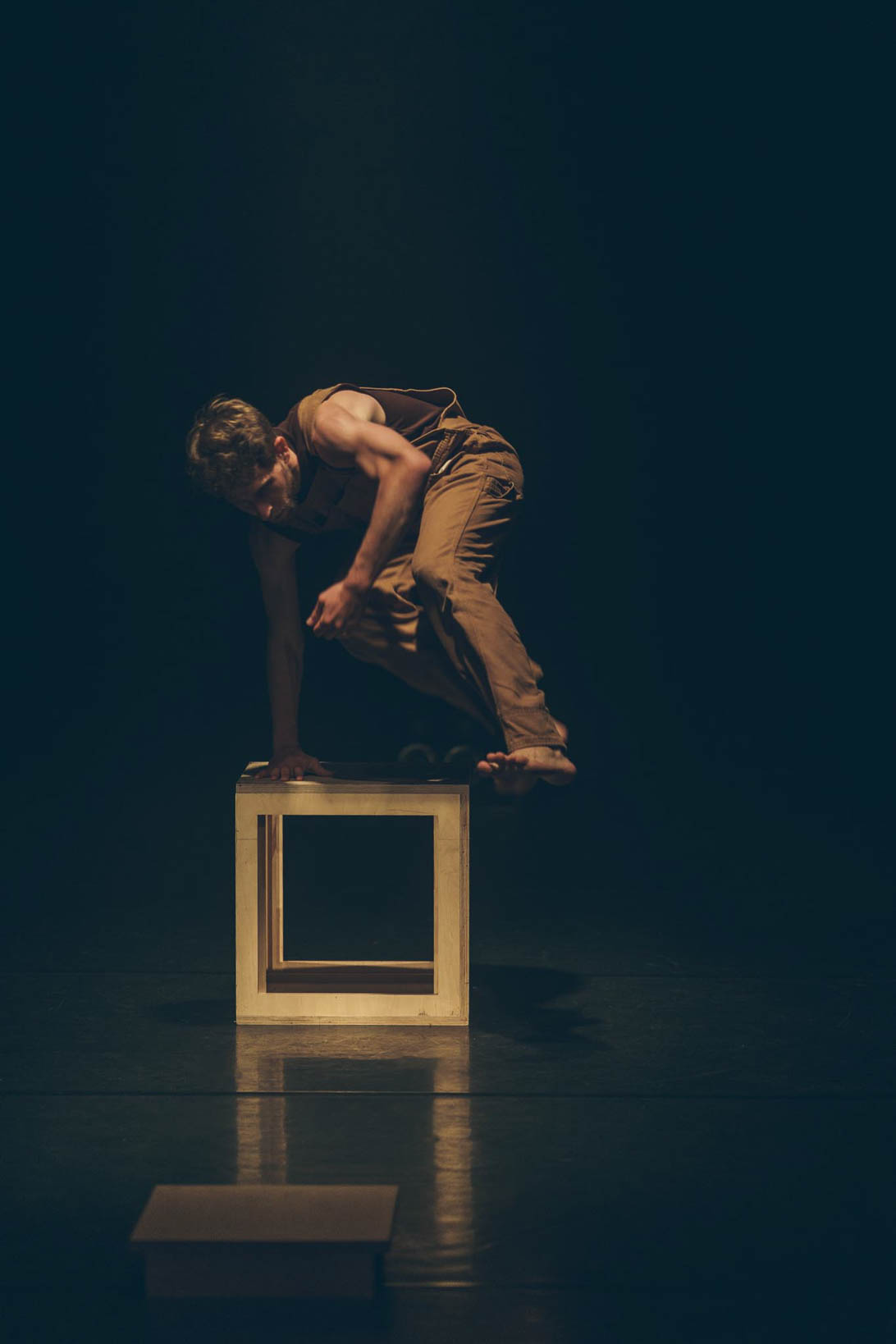In today’s context of virtual reality and post-pandemics, when we live more and more closed, we often feel like we are stuck in a box, between the walls of the room or the squares of the screens. The well-known writer Kobo Abe analyzed the alienation of people and the hostility of the present society towards personality in his novel “The Box Man”. After more than 30 years, it has become a hot topic again. Therefore, the creative team is developing a performance about the relationship between a person and a box. However, in this case the concept of the box is also articulated as a positive inspiration. For example, the sheep in the box from A. de Saint-Exupery’s story “The Little Prince”, which becomes a symbol of the liberation of the imagination, or the popular idiom “out of the box” in the scientific or social environment, which offers the possibility of liberation from our usual environment.
The box becomes an axis of the performance. Standing on stage, it is not only a closed, limiting space, but also a place of discovery (like a treasure chest or a music box). Separate plates of the box are also musical instruments, with which the performers will create live sound throughout all the performance. Therefore, the sound interpretation of the performance is different every time.
3 performers of different ages, professional education and life experience will appear on stage. They represent different stages of life in which we accept and value the concept of the “box” differently. The creative team analyzes the relationship with it through the system of human age stages by psychologist E.H. Erikson and through W. Strauss and N. Howe’s theory of generations’ idea. The latter claims that every 20 years a new unique generation of humanity grows up, which is formed in a specific period marked by political crises, cultural upheaval or technological breakthrough. All this determines the worldview and personal characteristics of the people of that era.
A young dancer knows no boundaries or borders. The box is a world of discovery (the influence of the phone and computer screen) for him. It is an analogue of self-discovery and establishment in society for a middle-aged sound artist. The aspiration to continue searching, but also the responsibility for what has already been achieved and created. Finally, for the mature mime, the box is his safe field of already established personal, communal, and professional experience. But it is also a dramatic realisation that old age has arrived and that all that you have grown and matured has to be passed on, left behind.
Are we free in our stages of life? At which stage are we most free? How much responsibility do we take? During 50 minutes of the performance, all three performers will deal with the relationship with the box in their own way, until finally the question – is the box a limitation or a discovery? – will be passed into the hands of the audience.
The production was financed by the Lithuanian Council for Culture



 Back
Back 










